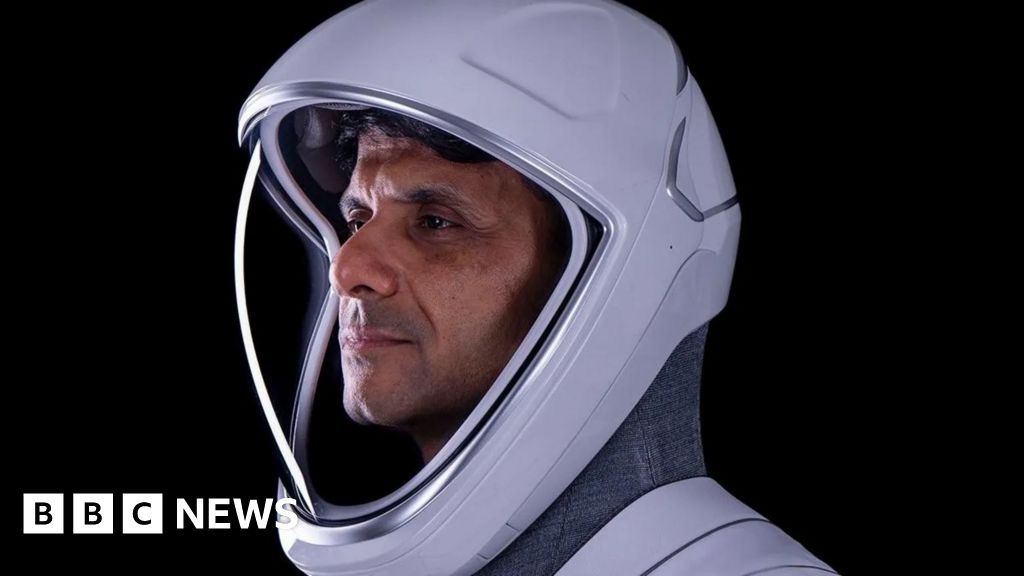Astronaut Shubhanshu Shukla is set to create history by becoming the first Indian ever to set foot on the International Space Station (ISS). On Wednesday, Group Captain Shukla set off on the Axiom-4 (Ax-4) mission that he's piloting. Led by former Nasa veteran Peggy Whitson, Ax-4 includes Slawosz Uznanski-Wisniewski from Poland and Tibor Kapu from Hungary. The crew were seen floating in the spacecraft on Thursday in a video shared by private firm Axiom Space. They will spend two weeks on the ISS. Group Captain Shukla is only the second Indian ever to travel to space. His trip comes41 years after cosmonaut Rakesh Sharma became the first Indian to fly aboard a Russian Soyuz in 1984. Ax-4 - a commercial flight operated by Houston-based Axiom Space - lifted off from Nasa's Kennedy Space Center in Florida at 02:31 EDT (06:31 GMT; 12:01 India time) on Wednesday. The docking on Thursday is due at 07:00EDT (11:00 GMT; 1630 India time). The mission is a collaboration between Nasa, India's space agency Isro, European Space Agency (Esa) and SpaceX. The two European astronauts will also be taking their countries back to space after more than four decades. During their two-week mission, the crew would spend most of their time conducting 60 scientific experiments, including seven designed by Indian Space Research Organisation (Isro). Isro, which has paid 5bn rupees ($59m; £43m) to secure a seat for Group Captain Shukla on Ax-4 and his training, says the hands-on experience he will gain during his trip to the ISS will help India in its human space flights. Isro has said it wants to launch the country's first-ever human space flight in 2027 and has announced ambitious plans to set up a space station by 2035 and send an astronaut to the Moon by 2040. Earlier on Thursday, Axiom Space had a live uplink with the astronauts on board where Group Captain Shukla spoke about his first 24 hours in space. "What a ride!," he said, adding that it has been "an amazing feeling to be just floating in space" and that "it's been fun time". "I was not feeling great when we got shot into vacuum, but I'm told I've been sleeping a lot, which is a great sign," he said laughing. "I'm enjoying the view, the experience and learning anew, like a baby, how to walk, to control yourself and to eat and read," he added. As Group Captain Shukla and other crew members spoke, Joy - a small, white toy swan described as Ax-4's "fifth crew member" - floated in and out of vision. Axiom has said Joy is "more than a cute companion for the Ax-4 crew" and is travelling to space as their "zero-G [zero-gravity] indicator". During Thursday's broadcast, Group Captain Shukla said the baby swan "symbolises wisdom and ability to discern what is important and what is not" which made it "so important in this age of distractions". Soon after Wednesday's launch, Commander Peggy Whitson revealed the name of their vehicle: Grace. "Grace is more than a name," she said. "It reflects the elegance with which we move through space against the backdrop of Earth. It speaks to the refinement of our mission, the harmony of science and spirit, and the unmerited favour we carry with humility." The name, she added, was a reminder "that spaceflight is not just a feat of engineering, but an act of goodwill - for the benefit of every human, everywhere".
Astronaut to become first Indian to set foot on ISS
TruthLens AI Suggested Headline:
"Shubhanshu Shukla Becomes First Indian Astronaut to Reach International Space Station"
TruthLens AI Summary
Astronaut Shubhanshu Shukla has embarked on a groundbreaking journey as he prepares to become the first Indian to set foot on the International Space Station (ISS). Shukla, who is also the second Indian in space, launched on the Axiom-4 (Ax-4) mission, which he is piloting, on Wednesday from NASA's Kennedy Space Center in Florida. The mission, which includes a crew of international astronauts led by former NASA veteran Peggy Whitson, features Slawosz Uznanski-Wisniewski from Poland and Tibor Kapu from Hungary. The crew is expected to spend two weeks aboard the ISS, where they will conduct a series of scientific experiments, including seven designed by the Indian Space Research Organisation (ISRO). This mission marks a significant milestone for India and its aspirations in human spaceflight, coming 41 years after Rakesh Sharma became the first Indian in space aboard a Russian Soyuz spacecraft in 1984.
The Axiom-4 mission is a collaborative effort involving NASA, ISRO, the European Space Agency (ESA), and SpaceX, and it represents the first commercial flight of its kind. During a live uplink session shortly after launch, Group Captain Shukla shared his initial experiences in space, describing the sensation of floating and expressing excitement about the journey. He humorously remarked on his adjustment to the zero-gravity environment, indicating that he had been sleeping well, which is considered a positive sign. A notable feature of the mission is Joy, a small toy swan serving as the 'zero-G indicator' for the crew, which Shukla described as a symbol of wisdom amidst distractions. The mission's vehicle has been named 'Grace' by Commander Whitson, reflecting the elegance and purpose of their expedition into space. Axiom Space emphasizes that this mission is not only a technological achievement but also a humanitarian endeavor aimed at benefiting all of humanity.
TruthLens AI Analysis
You need to be a member to generate the AI analysis for this article.
Log In to Generate AnalysisNot a member yet? Register for free.
